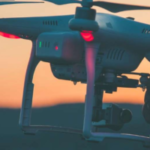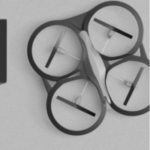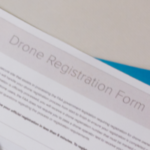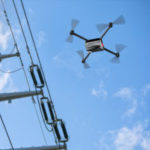Ryan Hilton
Partner | Tampa
Ryan K. Hilton is a Partner who joined Butler in 2002. He is the co-chair of the Firm’s Aviation practice group and focuses his practice on third-party liability coverage disputes. Ryan has extensive experience with coverage issues, particularly in auto, aviation, construction, and trucking cases. He also has experience with choice-of-law issues that impact insurance coverage considerations. Ryan frequently guides insurance companies in handling pre-suit time-limit demands. He has also litigated coverage extensively in the federal courts and is an AV peer-rated attorney by Martindale-Hubbell.
A seasoned author, Ryan has been published in numerous industry articles. He was awarded JD Supra’s 2019 Readers’ Choice Top Author Award for his writing and thought leadership on drones and aviation law and is a co-author of Butler on Drones Editions 1 and 2. Ryan is also an FAA-licensed pilot with an instrument rating, which gives him first-hand insight into the world of aviation.
Ryan received his Bachelor of Science degree, magna cum laude, from Ball State University in 1996, graduating from the Honors College. He received his Juris Doctor degree, cum laude, from Stetson University College of Law. While at Stetson, Ryan served as a law clerk for the Honorable Paul Levine in the Sixth Judicial Circuit of Florida. Upon graduation, Ryan received the William F. Blews Pro Bono Service Award. After graduating from law school, Ryan worked as a staff attorney in the Thirteenth Judicial Circuit of Florida before joining our Tampa office.
Ryan is admitted to practice in all of Florida’s state and federal courts and the Eleventh Circuit Court of Appeals.
Ryan maintains an AV rating by Martindale-Hubbell.
Admissions
- Florida
Education
- Ball State University
Bachelor of Science - Stetson University
Doctor of Jurisprudence
Memberships
- American Bar Association (ABA)
- Drones: Regulations, Operations and Litigation Committee of the American Bar Association’s Forum on Air and Space Law
- Hillsborough County Bar Association (HCBA)
- The Florida Bar
Courts
- United States District Court – Northern District of Florida
- United States District Court – Middle District of Florida
- United States District Court – Southern District of Florida
- United States Court of Appeals, Eleventh Circuit
Experiences
REPRESENTATIVE CASES
National Specialty Ins. Co. v. ABS Freight Transportation, Inc., et al., 91 F.Supp.3d 1258 (S.D. Fla. 2014) aff’d, 644 Fed. Appx. 900 (11th Cir. 2016)
St. Paul Fire & Marine Ins. Co. v. Cypress Fairway Condominium Assoc., Inc., et al., 114 F.Supp.3d 1231 (M.D. Fla. 2015)
Peak Property and Cas. Co. Ins. Corp. v. Ensslin, et al., Slip Copy, 2014 WL 2124270 (M.D. Fla. May 21, 2014)
Chartis Property & Cas. Co. v. Jassy, et al., Slip Copy, 2013 WL 5921541 (M.D. Fla. Nov. 4, 2013)
General Fidelity Ins. Co. v. Foster, et al., 808 F.Supp.2d 1315 (S.D. Fla. March 24, 2011)
Direct General Ins. Co. v. Vreeman, 943 So. 2d 914 (Fla. 1st DCA 2006)
LICENSES
FAA PRIVATE PILOT, SINGLE-ENGINE LAND, INSTRUMENT RATING
Media
New Appleman Florida Insurance Law (2024 Edition)
Butler congratulates its Partners on the 2024 New Appleman Florida Insurance Law Edition. This book was edited by Partner John Garaffa and co-authored by Partners Sarah Burke, Ryan Hilton, Julius “Rick” Parker III, Carol Rooney, Jason Seitz, James Michael Shaw, Jr., and J. Blake Hunter. LexisNexis Practice Guide: New Appleman Florida Insurance Law provides the practitioner with immediate ac...
Florida Law Catches Up to Stalking Drones
In 2015, Dan Mouneimne’s stepdaughter sat outside a downtown Tampa bar when she noticed a drone hovering around her. She fled to her car, and it followed her and crashed on top of her car. The Tampa Police Department told Mr. Mouneimne he could keep the drone, but otherwise there was nothing they could do. WFLA reporter Sunde Farquhar quipped, “Problem is, the technology has evolved so quickly...
New Appleman Florida Insurance Law (2022 Edition)
JOHN V. GARAFFA, SARAH R. BURKE, RYAN K. HILTON, JULIUS F. "RICK" PARKER III, JASON M. SEITZ, J. BLAKE HUNTER, CAROL M. ROONEY, JAMES MICHAEL SHAW, JR. Butler congratulates its Partners on the 2022 Edition of the New Appleman Florida Insurance Law. This book was edited by Partner John Garaffa and co-authored by Partners Sarah Burke, Ryan Hilton, Julius "Rick" Parker III, Carol Rooney, Jason Seitz...
Understanding Florida’s Lex Loci Contractus Choice-of-Law Test | Podcast
Partner Ryan Hilton discusses Florida's Choice-of-Law Test in this latest podcast episode.The podcast expands on Ryan's latest blog "The Unpredictability of Florida's Supposedly Predictable Choice-of-Law Test" as he discusses what choice-of-law issues are, how they are relevant (in what types of cases) and the different choice-of-law tests courts apply. He will address Florida’s choice-of-law te...
The Unpredictability of Florida’s Supposedly Predictable Choice-of-Law Test
For purposes of determining contract interpretation, Florida courts apply the lex loci contractus choice-of-law rule. The Supreme Court of Florida observed that lex loci contractus is an “inflexible rule” that exists “to ensure stability in contract arrangements.” Under lex loci contractus, a contract (other than one for the performance of services) is governed by the law of the state in w...

































